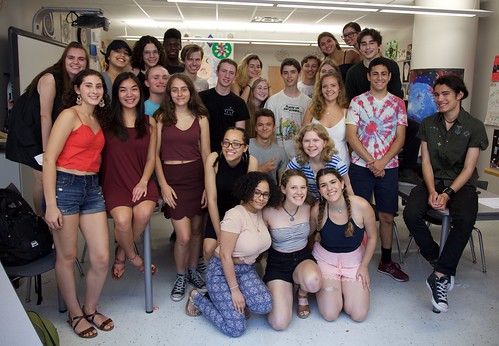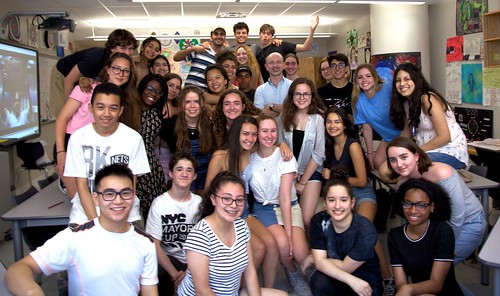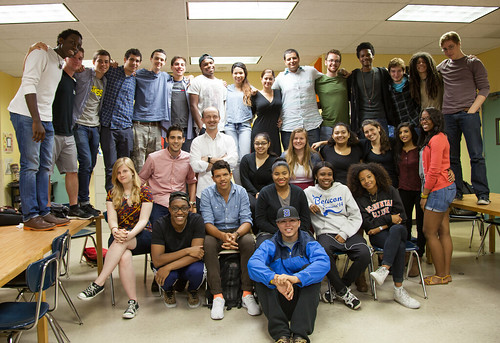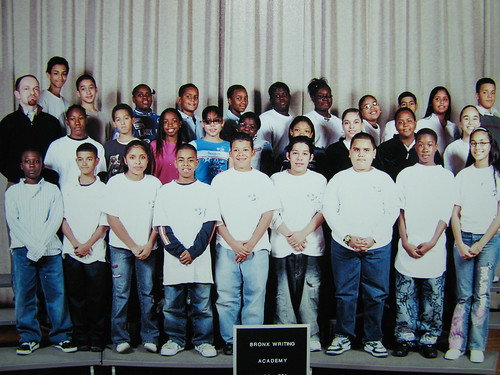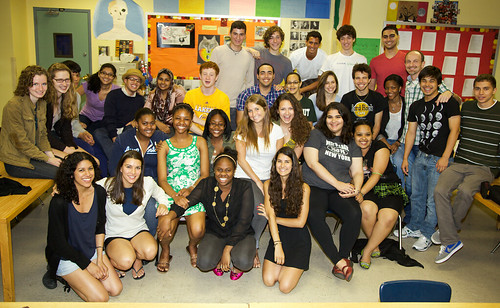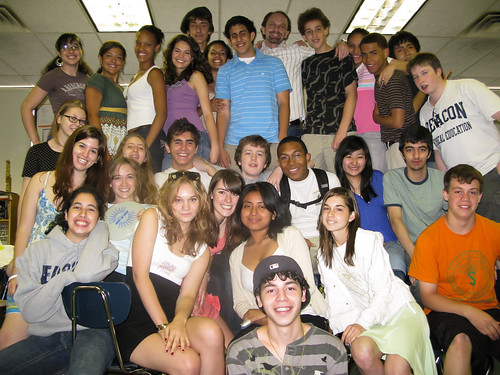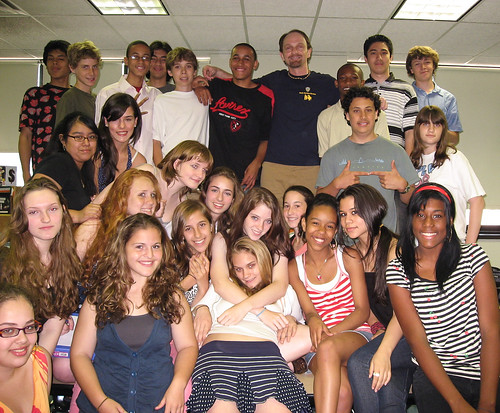1. Samuel Beckett–(~1 page) Research and take notes on our last (last, as in the last author we read this year: Samuel Beckett) author.
2. Theater of the Absurd–(~1 page) Research and take notes.
HW due 5/12: Research
HW10 due 6/3: Godot and More…
Writing Exemplars Wanted!–Please email me copies of this year’s essays (as attachments or Google Docs links)! Extra Credit!
1. PBA–Final Drafts for ALL CLASSES due Monday! Remember, you should have two copies of your final draft.
10E ONLY: Finish editing your peer’s essay! Be thoughtful, constructive, and thorough in your feedback.
2. Waiting for Godot–Read up to p. 80!
INDEX CARDS DUE TOMORROW! VERY IMPORTANT!!! 3×5 ONLY!
HW10: PBA Essay and Godot
CLOSELY READ FOR DUE DATES!
1. Waiting for Godot–Read and annotate up to p. 70! We are running out of time! (This reading is due Monday, June 1st)
2. PBA First Drafts!
English 10B: Your first draft is due Monday, June 1st! (3-4 pages)
English 10E and 10H: Your first draft is due Tuesday, June 2nd! (4-5 pages)
For 10E and 10H: Sample Ivan Ilyich Essay with marked sections where I might include source material and my brief rationale for why I would include said material. Remember, you must include two sources and quote from each source at least twice.
Also, please buy a 100 pack of 3×5 inch index cards (10E and 10H)!
General Formatting:
- Double-spaced; size 12 font; Times New Roman or similar
- .75 margins on both left and right sides. Justify margin. Indentations– .5” or 1 tab space.
- All pages beyond the first page should be numbered. Page numbers should be placed at the bottom right of each page.
- No Cover Page. Include name, class, and date (Single space the heading)
- Be sure TITLE reflects the theme of the essay (for instance, 1984: Hierarchical Hegemony)
- Include Title, Author, and General Theme of work in first paragraph of essay…For Example—Jean Paul Sartre’s Nausea
- Follow MLA guidelines
Avoid the Following:
- Avoid Pronouns: I, it, you, me, we, us
- Avoid Troublesome language. Do your best to avoid the following words: it, these, this, those, kind of, almost, seems, maybe, like, then, later, eventually, basically, so, many, a lot, things, due to the fact (or any variations of the fact that), in reality, very, really, forms of the verb “to be”
- In the intro, nix all book-review commentary—i.e. “is fascinating, interesting…”
- Avoid meaningless sentences–i.e. “Authors rely heavily on symbolism.”
- Contractions
- While I am not suggesting that you avoid all modifiers, you certainly should be conscious of how you are using them. Yet, definitely avoid the likes of really, basically, very, excellent, terrible, etc.
- Avoid misspelling proper nouns!
Remember:
- When writing about literature, write in the present tense.
- Active voice should be your default voice and only use passive when you are CHOOSING to use passive voice.
- Get comfortable writing in complex and compound sentences.
- Introductions and conclusions are factored into the grading of this essay.
- Read your essay aloud and you will hear many diction and syntax issues.
Keys to Good Writing:
- Cohesion—Every sentence fits together; paragraphs flow smoothly. Ensure that the entire discussion comes together as one unified discussion of your text and its context.
- Concision—Less is more. Use fewer words to explain yourself. Begin fusing sentences by merging ideas into tightly knit phrases.
- Precision—Accuracy. Use words that accurately capture what you mean. Don’t settle for words or expressions that come close.
- Coherence—Does your essay make sense? Are your ideas organized in a logical sequence? Do you prove your thesis? Do the parts contain the essence of the whole?
HW10E and H due 5/28: Godot
1. Waiting for Godot–Read and annotate Lucky’s monologue (pp. 45-47) (equally famous and frustrating). Beckett has stated that the threads and themes of the play are being gathered together in the monologue. Don’t write about it…just think about it…–Analyze Lucky’s monologue in search of meaning…yes, you must weed through the nonsense to pick out the substantial… Although, some would argue that even that which is nonsensical is substantial. There is method to the madness that seemingly is his speech. So, really, what is it that he is saying? Think, human condition. Also, consider how the subject of his speech parallels the plight of Vladimir and Estragon.
Some tips for Annotation Focus:
- Define apathia, athambia, and aphasia
- There are three sections of the monologue. See if you can discern where one ends and another begins. See if you can come up with thematic labels for each part.
2. English 10E–Be sure to have your personal vocab sections tomorrow!
HW10E and H due 5/27: PBA Prep, Godot, and Forum
1. Waiting for Godot–Read and annotate through p. 44.
2. PBA Prep–Tonight, think about which two of the three sources will contribute most meaningfully to your overall argument. Choose your two! Then, briefly explain why you chose the two sources (in your notebook). Remember, first drafts are due next Monday (for all three classes).
3. Class Forum–Post your detailed outline!


